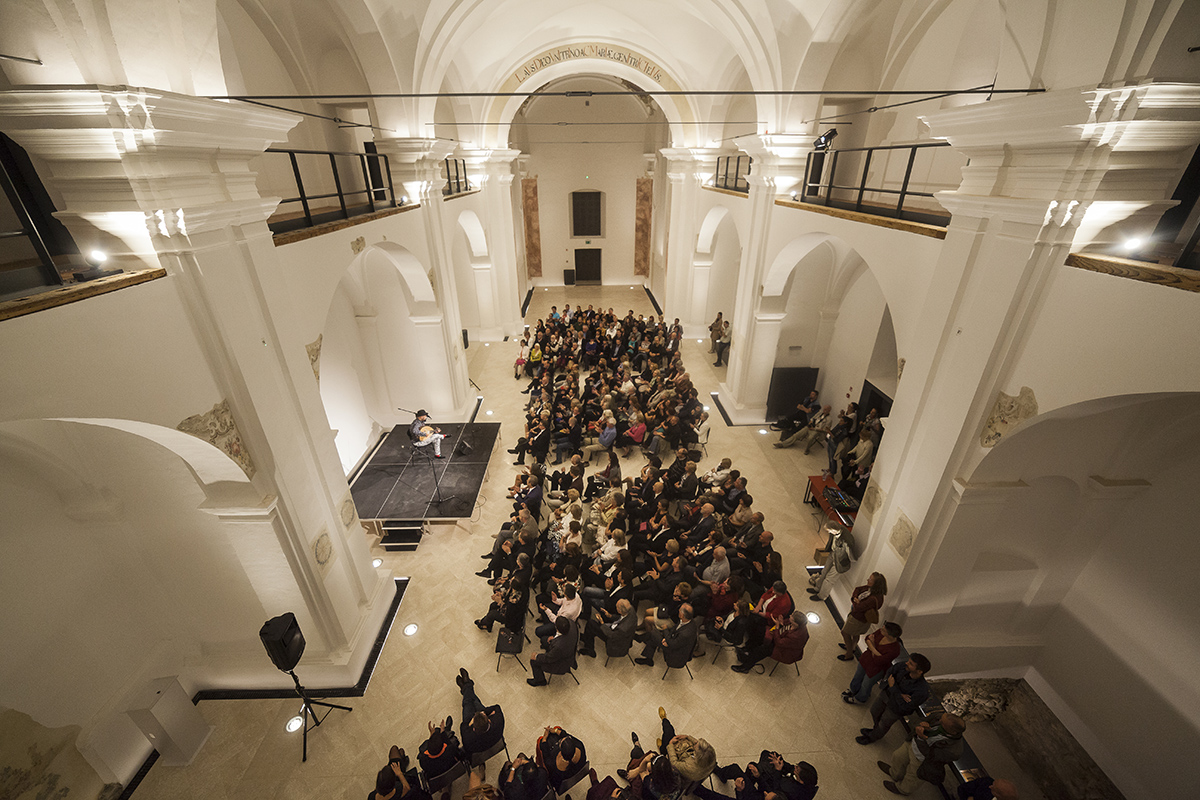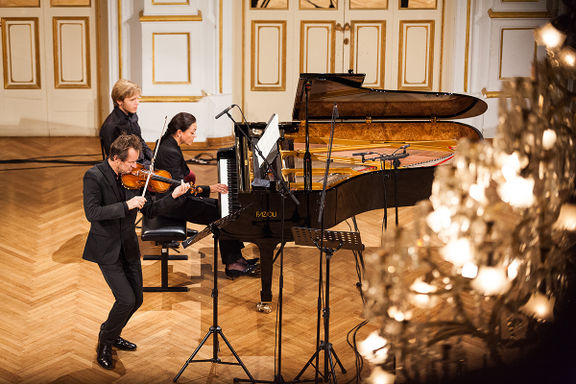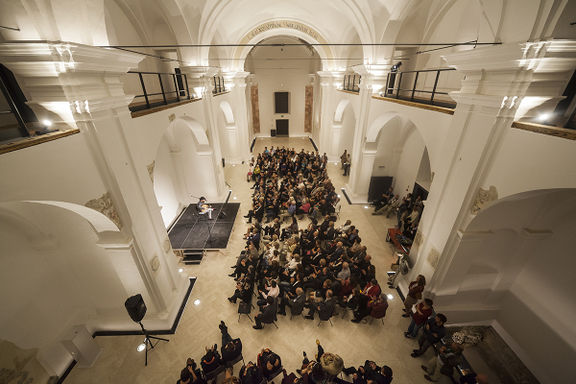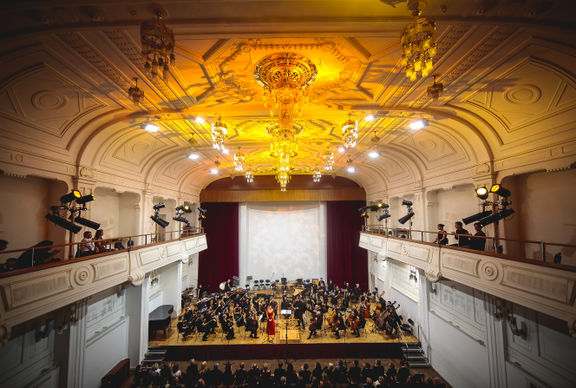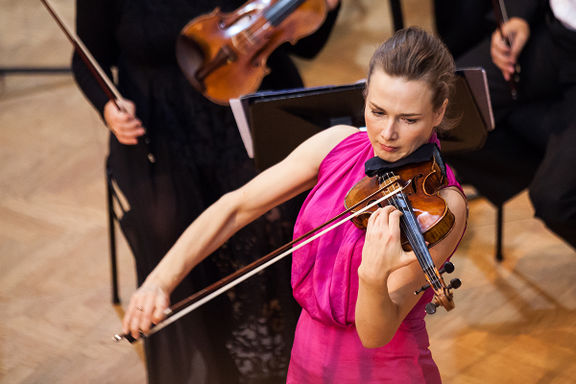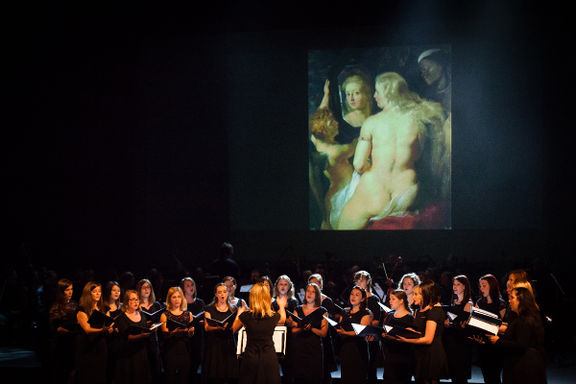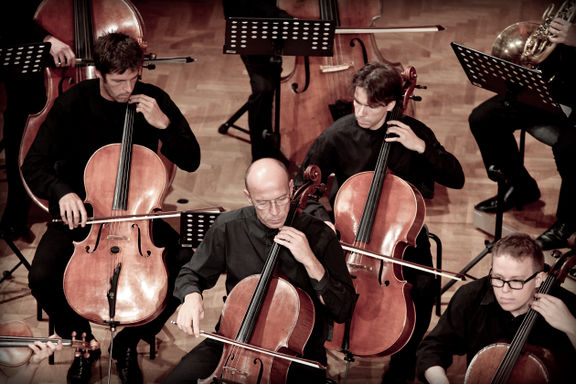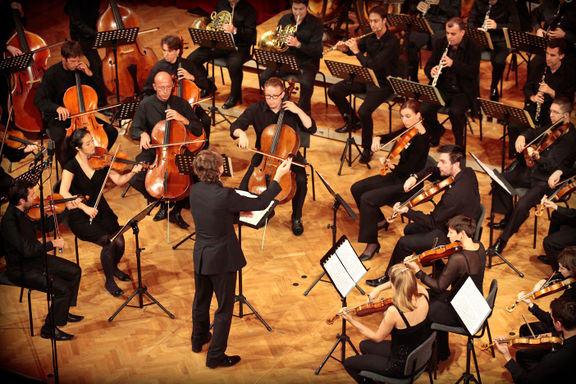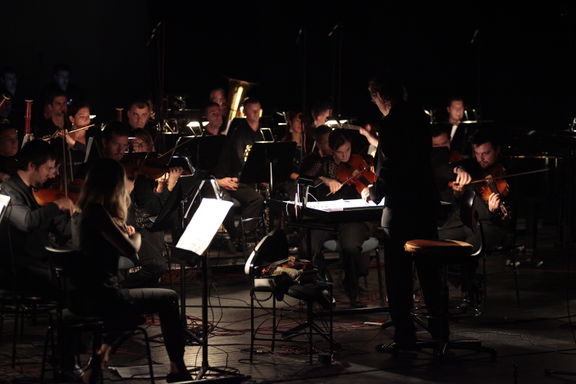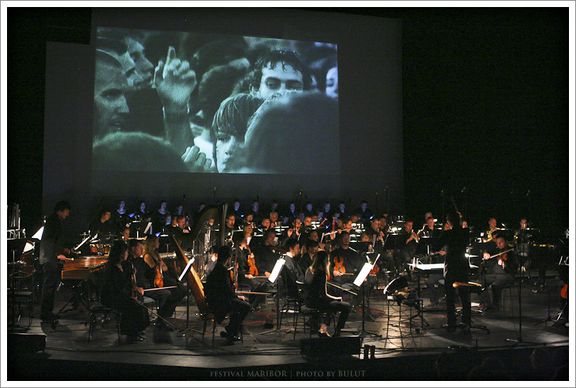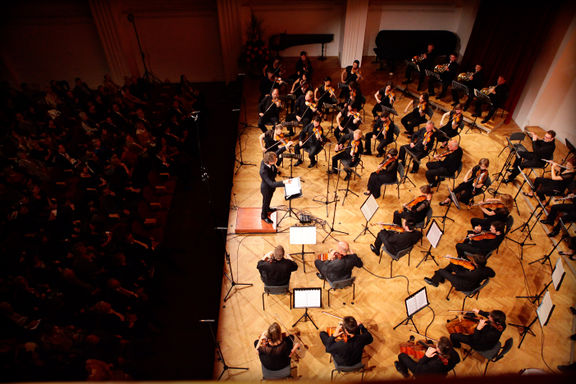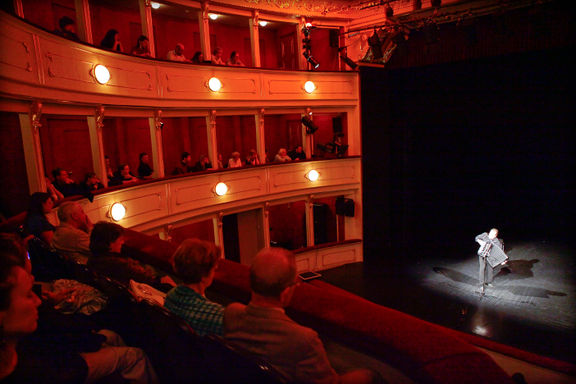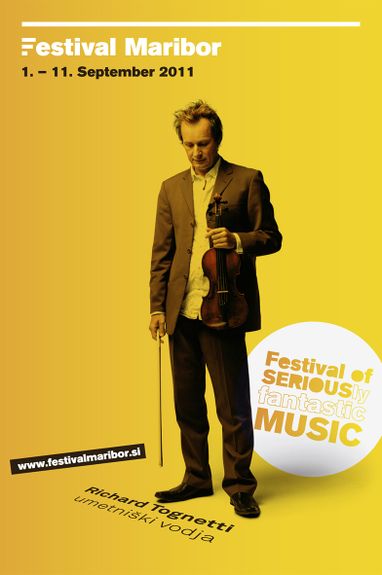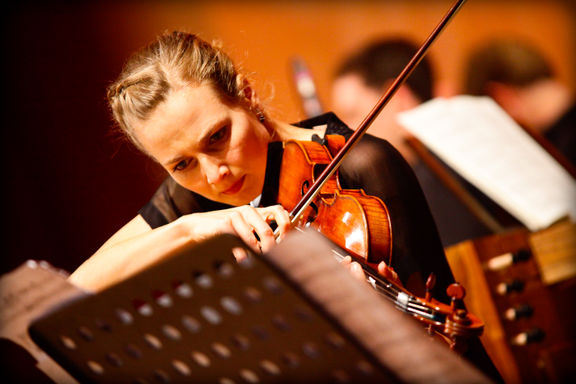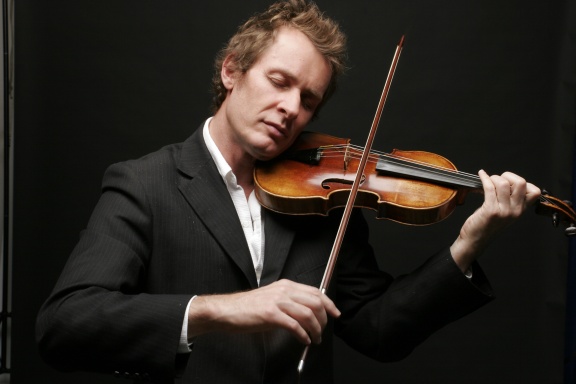Difference between revisions of "Festival Maribor"
| (63 intermediate revisions by 9 users not shown) | |||
| Line 1: | Line 1: | ||
{{Article | {{Article | ||
| − | | status = | + | | status = PHOTO COVER |
| − | | maintainer = | + | | maintainer = Anže Zorman |
}} | }} | ||
| + | |||
{{Infobox | {{Infobox | ||
| − | | name = Maribor | + | | name = Festival Maribor |
| local name = Festival Maribor | | local name = Festival Maribor | ||
| − | | street = | + | | logo = Maribor Festival (logo).svg |
| + | | street = Ulica kneza Koclja 9 | ||
| town = SI-2000 Maribor | | town = SI-2000 Maribor | ||
| − | | telephone = 386 (0) 2 229 | + | | telephone = 386 (0) 2 229 4001 |
| − | | fax = | + | | fax = |
| email = office@festivalmaribor.si | | email = office@festivalmaribor.si | ||
| website = http://www.festivalmaribor.si | | website = http://www.festivalmaribor.si | ||
| − | | organised by = Narodni dom Maribor | + | | organised by = |
| − | | contacts = | + | | organised by 2 = Narodni dom Maribor |
| − | + | | contacts = | |
| − | |||
| − | |||
{{Contact | {{Contact | ||
| − | | name = | + | | name = Barbara Švrljuga-Hergovich |
| − | | role = Head of Concert Management | + | | role = Head of Festival Maribor, Head of the Narodni dom Concert Management |
| − | | telephone = | + | | telephone = |
| − | | email = | + | | email = barbara.svrljuga@nd-mb.si |
}} | }} | ||
{{Contact | {{Contact | ||
| − | | name = | + | | name = Tadeja Kristovič |
| − | | role = Producer | + | | role = Public relations, Producer |
| − | | telephone = 386 (0) | + | | email = tadeja.kristovic@nd-mb.si |
| − | + | | telephone = 386 (0) 2 229 4006 | |
}} | }} | ||
| frequency = annual | | frequency = annual | ||
| − | | dates and duration = September, 10 | + | | dates and duration = September, 11 days |
| − | }} | + | | duration weeks = 36,37 (2012) 36,37 (2013) 36,37 (2014) |
| + | | festival dates = 8.9.2015 - 18.9.2015, 6.9.2016 - 17.9.2016, 3.9.2017 - 21.9.2017, 20.9.2018 - 28.9.2018, 10.9.2019 - 19.9.2019, 17.9.2020 - 26.9.2020, 16.9.2021 - 25.9.2021, 15.9.2022 - 24.9.2022, 14.9.2023 - 1.10.2023 | ||
| + | |accounts= | ||
| + | https://twitter.com/festivalmaribor | ||
| + | https://www.facebook.com/FestivalMaribor | ||
| + | https://www.youtube.com/user/thefestivalmaribor/videos | ||
| + | https://www.instagram.com/festival_maribor | ||
| + | }} | ||
| + | |||
| + | {{Teaser| | ||
| + | {{Wide Image|Festival Maribor 2015 Joseph Tawadros at Minorite Church.jpg}} | ||
| + | |||
| + | Running a strong and uniquely conceptualised musical programme, the Maribor Festival has established itself as one of Slovenia’s most respected classical music events. Held for about two weeks each year in September, the festival usually assembles around 150 Slovenian and foreign musicians to play in Maribor (and sometimes also in its neighbouring cities). Its programme is created in collaboration with domestic as well as foreign co-producers and musicians, and is thus featuring many productions that were realised especially for the occasion. | ||
| + | The boldly selected repertoire encompasses both, pieces for chamber orchestras as well as outstanding symphonic and vocal-instrumental works. Many positive foreign critiques of the festival helped defining it as an internationally respected and frequented music festival. The festival's main producer is the central cultural institution in the city, [[Narodni dom Maribor]]. | ||
| − | |||
| − | |||
}} | }} | ||
==Background== | ==Background== | ||
| − | |||
| − | + | The origins of the Maribor Festival lie in [[established::1964]], when the Festival of Baroque Music was organised for the first time. Later, in 1994, the festival’s newly appointed artistic director, the esteemed pianist and professor [[Janko Šetinc]], changed its name as well as its programming concept and named it "Musical September, an International Chamber Music Festival". | |
| + | |||
| + | He was succeeded by one of the most renowned chamber musicians in the world, Radovan Vlatković, and – from 2008 up to 2015, missing out only in 2013 – the famed Richard Tognetti, also the artistic head of the Australian Chamber Orchestra. Tognetti has not only gained the festival many overseas fans, he also gave it its present name and introduced orchestral performances into the programme. | ||
| + | |||
| + | {{YouTube|pAJUtP2ZWpk}} | ||
==Programme== | ==Programme== | ||
| − | + | ||
| + | Though baroque music used to be at the heart of the festival, it has later been substituted by a varied selection of chamber music going from the Baroque era to the present. Different crossover genres (jazz and ethno music) also found their way into the festival’s programme, as well as multimedia projects. Nowadays it has mainly returned back to its roots and is presenting a refined selection of artists and classical pieces, centred around the festival’s annually chosen theme. | ||
| + | |||
| + | During the pre-production phase the festival serves as a kind of music laboratory, where musicians can collaborate and team up to prepare the concert line-up. Acclaimed musicians and members of exceptional orchestras from all over the world are individually chosen to set up – in accord with the program prepared by the artistic director – various chamber and orchestral ensembles as well as form the core of the Festival Maribor Orchestra. This is assembled anew each year and can alternatively also be the so called Maribor Festival Chamber Ensemble (which, for example, features the Armenian pianist Mikajel Baljan in 2016). | ||
| + | |||
| + | ===Past guest musicians=== | ||
| + | |||
| + | The festival's friendly atmosphere and innovative organisation attract world acclaimed musicians like Boris Berezovski, Vlatko Stefanovski, Joseph Tawadros, Knut Erik Sundquist, Giovanni Sollima, William Burton, Katie Noonan, Luka Šulić, Danny Spooner, [[Marko Letonja]], [[Vasko Atanasovski]] and, Nicolas Altstaedt. | ||
| + | |||
| + | ===Accompanying programme=== | ||
| + | |||
| + | Each year, the main concert programme is accompanied by free-of-charge events that address various audiences that may not otherwise frequent such concerts and workshops (led by, for example, [[Symbolic Orchestra|Bojan Cvetrežnik]]). This sub-programme is called the Festival for Maribor. In the past years it took place in a retirement home, a hospital, a prison, and also on the streets of Maribor (as well as some other cities). The 2016 edition of the Festival for Maribor is – following the theme of the festival – specifically focused on children. | ||
| + | |||
| + | Other more sporadic events like book presentations and lectures frequently are also set up, as are concerts outside the festival's time-frame, like the special New Year's concert. | ||
| + | |||
| + | {{YouTube|DYOst6oIeAE}} | ||
==Venues== | ==Venues== | ||
| − | The Maribor Festival venues | + | |
| + | The Maribor Festival takes place at many beautiful venues such as the Fin de Siècle styled Union Hall (acclaimed for its superb acoustics), the Casina Hall and the Old Hall at the [[Slovene National Theatre Maribor]], the [[Vetrinjski dvor|Vetrinje Mansion]], the Minorite Church in Maribor and the [[Narodni dom Maribor]]. A part of the programme is sometimes also held in Graz, Austria (in collaboration with MusikabendeGRAZ). | ||
| + | |||
| + | In previous years the concerts were not only held in a number of Maribor based concert halls, churches and castles, but also in some other picturesque venues such as the Knights Hall at [[Ptuj Castle]] in in other nearby cities (Ptuj, Slovenj Gradec, Dornava, Velenje, etc). In addition, some of the festival's accompanying programme takes place in the picturesque squares of Maribor's historic centre. | ||
== See also == | == See also == | ||
| + | *[[Slovene National Theatre Maribor]] | ||
| + | *[[Vetrinjski dvor|Vetrinje Mansion]] | ||
*[[Narodni dom Maribor]] | *[[Narodni dom Maribor]] | ||
| − | *[[ | + | *[[Minorite Church, Maribor]] |
== External links == | == External links == | ||
| − | *[http://en. | + | *[http://www.festivalmaribor.si/en/ Maribor Festival website] |
| + | *[http://www.telegraph.co.uk/culture/music/classicalconcertreviews/8009239/Maribor-Festival-review.html The Telegraph review of Festival Maribor] | ||
| + | *[http://www.musikabendegraz.at/en/ MusikabendeGRAZ website] | ||
| + | |||
| + | {{Gallery}} | ||
[[Category:Festivals]] | [[Category:Festivals]] | ||
| Line 60: | Line 98: | ||
[[Category:Music festivals]] | [[Category:Music festivals]] | ||
[[Category:Music]] | [[Category:Music]] | ||
| + | [[Category:Maribor, European Capital of Culture 2012]] | ||
Revision as of 11:27, 27 February 2023
Background
The origins of the Maribor Festival lie in 1964, when the Festival of Baroque Music was organised for the first time. Later, in 1994, the festival’s newly appointed artistic director, the esteemed pianist and professor Janko Šetinc, changed its name as well as its programming concept and named it "Musical September, an International Chamber Music Festival".
He was succeeded by one of the most renowned chamber musicians in the world, Radovan Vlatković, and – from 2008 up to 2015, missing out only in 2013 – the famed Richard Tognetti, also the artistic head of the Australian Chamber Orchestra. Tognetti has not only gained the festival many overseas fans, he also gave it its present name and introduced orchestral performances into the programme.
Programme
Though baroque music used to be at the heart of the festival, it has later been substituted by a varied selection of chamber music going from the Baroque era to the present. Different crossover genres (jazz and ethno music) also found their way into the festival’s programme, as well as multimedia projects. Nowadays it has mainly returned back to its roots and is presenting a refined selection of artists and classical pieces, centred around the festival’s annually chosen theme.
During the pre-production phase the festival serves as a kind of music laboratory, where musicians can collaborate and team up to prepare the concert line-up. Acclaimed musicians and members of exceptional orchestras from all over the world are individually chosen to set up – in accord with the program prepared by the artistic director – various chamber and orchestral ensembles as well as form the core of the Festival Maribor Orchestra. This is assembled anew each year and can alternatively also be the so called Maribor Festival Chamber Ensemble (which, for example, features the Armenian pianist Mikajel Baljan in 2016).
Past guest musicians
The festival's friendly atmosphere and innovative organisation attract world acclaimed musicians like Boris Berezovski, Vlatko Stefanovski, Joseph Tawadros, Knut Erik Sundquist, Giovanni Sollima, William Burton, Katie Noonan, Luka Šulić, Danny Spooner, Marko Letonja, Vasko Atanasovski and, Nicolas Altstaedt.
Accompanying programme
Each year, the main concert programme is accompanied by free-of-charge events that address various audiences that may not otherwise frequent such concerts and workshops (led by, for example, Bojan Cvetrežnik). This sub-programme is called the Festival for Maribor. In the past years it took place in a retirement home, a hospital, a prison, and also on the streets of Maribor (as well as some other cities). The 2016 edition of the Festival for Maribor is – following the theme of the festival – specifically focused on children.
Other more sporadic events like book presentations and lectures frequently are also set up, as are concerts outside the festival's time-frame, like the special New Year's concert.
Venues
The Maribor Festival takes place at many beautiful venues such as the Fin de Siècle styled Union Hall (acclaimed for its superb acoustics), the Casina Hall and the Old Hall at the Slovene National Theatre Maribor, the Vetrinje Mansion, the Minorite Church in Maribor and the Narodni dom Maribor. A part of the programme is sometimes also held in Graz, Austria (in collaboration with MusikabendeGRAZ).
In previous years the concerts were not only held in a number of Maribor based concert halls, churches and castles, but also in some other picturesque venues such as the Knights Hall at Ptuj Castle in in other nearby cities (Ptuj, Slovenj Gradec, Dornava, Velenje, etc). In addition, some of the festival's accompanying programme takes place in the picturesque squares of Maribor's historic centre.




